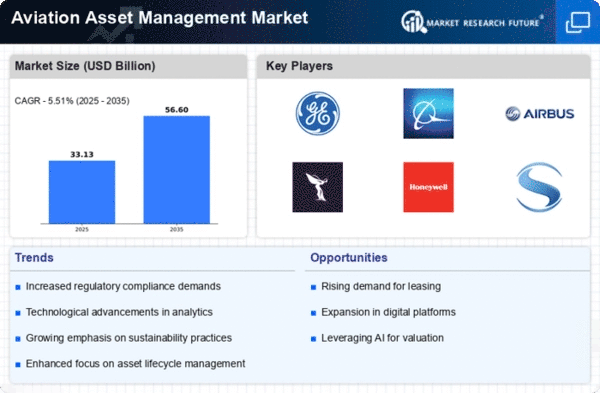Market Analysis
In-depth Analysis of Aviation Asset Management Market Industry Landscape
The dynamic and constantly shifting aviation asset management industry is essential to the efficient operation of the aviation industry. The market of this product includes a broad spectrum of jobs related to the upkeep of aviation industry assets, including engines, airplanes, and other vital components. A multitude of factors influence the dynamics of the worldwide aviation asset management market, hence dictating its trajectory of growth. The industry's market is influenced by a number of important variables, including the ongoing advancement of technology. The level of detail and advanced technology of aviation assets have increased as a result of advancements in engine performance, aircraft layout, and navigational systems. The dynamic and constantly shifting aviation asset management industry is essential to the efficient operation of the aviation industry. The market for this product encompasses a wide range of tasks associated with maintaining the assets of the aviation sector, such as engines, aircraft, and other crucial parts. Another important factor influencing the functioning that govern the aviation asset management industry is regulatory frameworks. To guarantee the safety and stability of air travel, strict laws and regulations are applied to the aviation sector. These guidelines must be adhered to strictly, and asset management strategies ought to do the same. Modifications in laws and regulations can have a substantial effect on market dynamics. The demand for particular services and solutions that address changing compliance requirements may also be impacted by these changes. Aviation asset management market circumstances are heavily influenced by the state of the economy worldwide and the aviation business overall. The necessity of air travel, airline profitability, and fleet growth all impact asset management decisions. Airlines may decide to spend in growing their fleets during times of economic expansion, which will raise the need for asset management solutions. On the other hand, economic slumps or crises might force airlines to review their holdings and look for more affordable management options, which would have an impact on market dynamics. Another element influencing the aviation asset management market dynamics is the competitive environment. The growing need for such products and services is causing more businesses to enter the market, which is intensifying competition in the sector. Businesses set themselves apart with comprehensive solutions, cutting-edge technology, and knowledgeable services. Being able to react quickly to alterations in the market and provide specific services that are tailored to the individual demands of each client is essential for success in this competitive business. Furthermore, the long-term health of the environment is starting to have a big influence on industry dynamics. Businesses are integrating environmentally friendly methods in their asset management plans as the focus on minimizing the aviation industry's negative environmental effects grows. During the asset lifecycle, this entails recycling parts, maximizing fuel economy, and implementing sustainable practices. Businesses that include sustainability into their asset management strategies have the potential to gain a competitive advantage as environmental issues continue to gain traction. In summary, the market for aviation asset management is defined by dynamic, linked variables that shape its future. A number of variables, including economic conditions, competitive environments, technical advancements, legal frameworks, and sustainability concerns, influence the market dynamics. Businesses operating in this field need to adeptly navigate these factors in order to stay relevant, meet the aviation sector's always changing requirements, and contribute to the general environment and the effectiveness of air travel.


















Leave a Comment